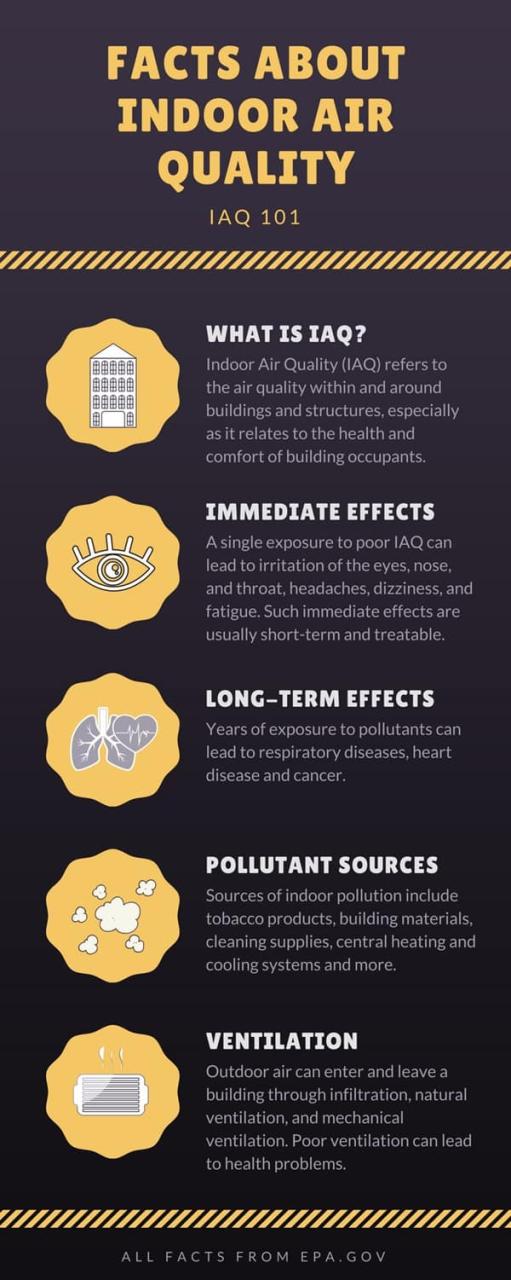There is no doubt that air conditioner units provide comfortable conditions to live and work indoors. They absorb heat produced by the sun, electrical and electronic appliances, and reduce heat and humidity in the indoor space. However, there are certain myths associated with air-conditioned spaces that are debunked here.
Myth 1: There is No Need for an Air Purifier if You Have an Air Conditioning Unit
Fact
An air conditioner unit only regulates temperature, humidity and ventilation in the indoor space. It uses a heat exchange method to cool the indoor air. It does not purify the air by any means because they are not designed to trap airborne contaminants. It is also ineffective for smaller particles. The air filter inside the air conditioner unit doesn’t filter the air, but rather prevents dust from entering the system.
On the contrary, an air purifier eliminates pollutants from the air. It kills pathogens and other harmful airborne microorganisms. An air conditioning unit has zero effect on the indoor air quality and hence, an air purifier is necessary along with it.
Myth 2: Indoor air is Cleaner than Outdoor Air

Fact
Outdoor air contains impurities such as carbon monoxide, nitrogen oxide, sulfur dioxide, particulates and polyaromatic hydrocarbons. Most of the air you breathe indoors comes from outside.
Indoor air also contains pathogens, bacteria, viruses, mold and other dangerous microorganisms. Moreover, these impurities are more densely concentrated indoors than outdoors. When you breathe, you inhale more impurities indoors than you do outside.
You can imagine the level of impurities and pollutants you expose yourself to every day in indoor spaces. In fact, there is growing scientific evidence that indoor air is more dangerous than outdoor air and can pose a greater risk to your health. If ventilation is inadequate, indoor air quality may further deteriorate.
Indoor air can cause health problems such as breathing trouble, runny or stuffy nose, common cold, cough, flu, headaches, dry or itchy eyes, tiredness, skin irritation, viral diseases, respiratory disorders, cardiovascular diseases, lung cancer, tuberculosis, weakened immune system, trigger or worsen asthma and respiratory allergies. A study by Harvard T.H. Chan of the School of Public Health found that poor indoor air quality also lowers the productivity and cognitive functions of employees in offices, apart from adversely impacting their health.

Myth 3: Air Conditioned Spaces are Safe

Fact
An air conditioning unit recirculates the same air in the indoor space. There is negligible or very little addition of fresh air. Viruses and bacteria float around in the form of tiny droplets and recirculate within the unit. The unit also has dark and moist parts or standing water which make them the perfect breeding ground for mold and bacteria.
A UVGI-based air purification system can overcome the above-mentioned limitations of air conditioning or HVAC units. Commonly known as UVGI air purifiers, they can be fitted into these units to sanitize and disinfect the air.
These purifiers work on the Ultraviolet Germicidal Irradiation (UVGI) method, a proven and cost-effective means of disinfection of air, water and surface. UVGI air purifiers use short- wavelength ultraviolet energy to inactivate and kill viral, bacterial and fungal organisms. An article published in Science Direct journal states that UVGI disinfection in the HVACs of commercial buildings is one of the approaches to improve air quality and reduce the health risks of occupants.
Alfaa UV Solutions
Alfaa UV offers the following UV air sterilization solutions for indoor air disinfection:
UltraCoil
Unlike conventional chemicals and scrubbing that damage the HVAC coils, the UltraCoil helps in deep cleaning of coils in the safest and most eco-friendly way. The Ultracoil has a unique Parabolic Reflector System that proactively removes the biofilms to prevent air contamination through coils and drain pans.
UltraDuct
UltraDuct improves air quality by providing assured single-pass disinfection of airborne bacteria and viruses. This UVGI air disinfection solution is installed in supply or return ducts. It increases the life of HEPA filters and eliminates poor building syndrome and cross-contamination.